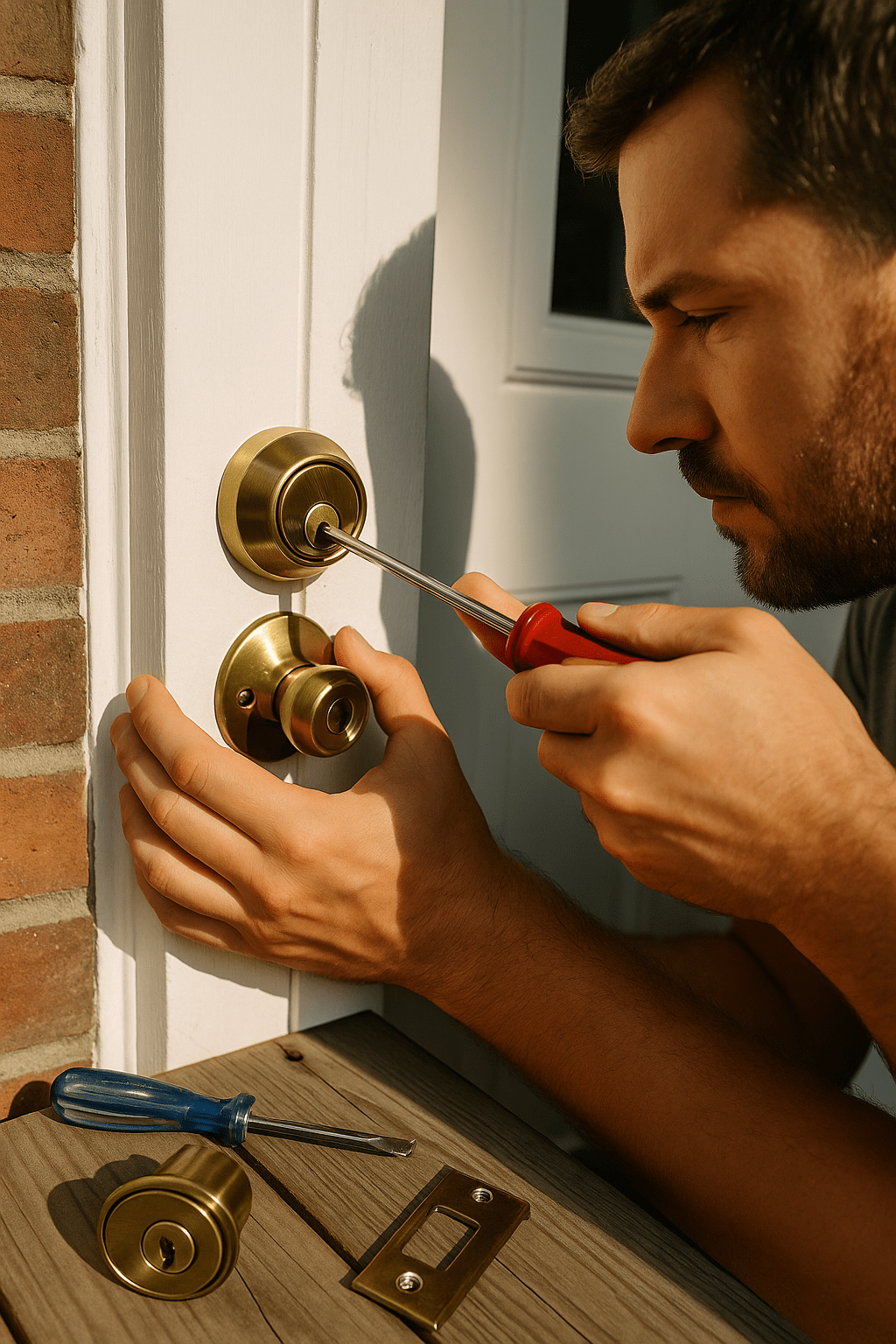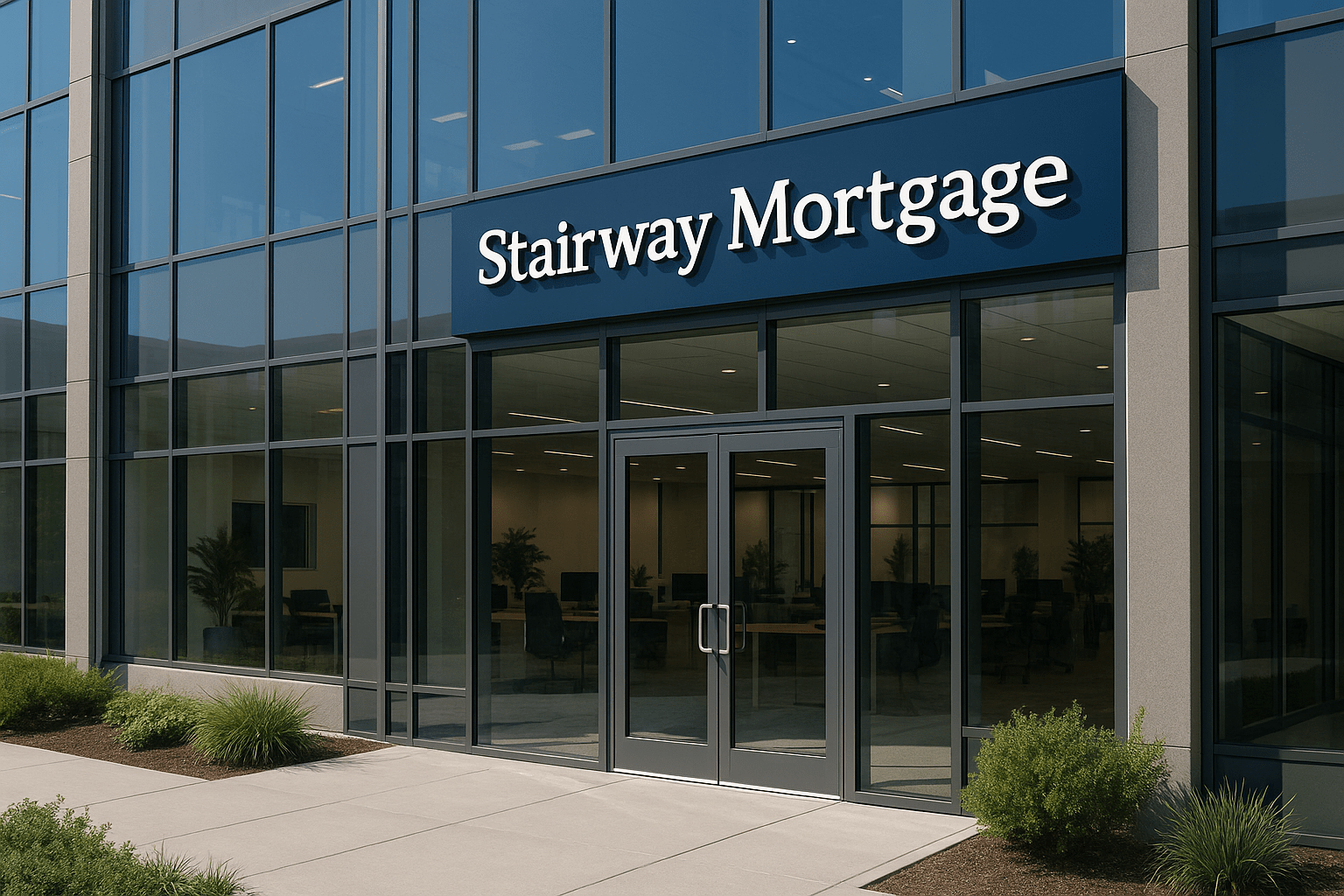Homeowner Maintenance Checklist: Your First 30 Days After Closing
Homeowner Maintenance Checklist: Your First 30 Days After Closing

Homeowner Maintenance List: Essential Post-Closing Tasks to Protect Your Investment
You’ve crossed the finish line. The keys are in your hand. You’re officially a homeowner now—but what comes next?
The first month after closing isn’t just about moving boxes and hanging pictures. It’s about establishing order, creating security, and building the foundation for lasting wealth. This critical window sets the tone for your entire homeownership journey.
In this guide, you’ll discover:
- The first week security checklist that prevents costly problems (following Consumer Financial Protection Bureau guidelines)
- How to set up preventative maintenance systems (per HUD homeowner resources)
- Essential utilities and services to establish immediately
- Month-one priorities that build equity from day one (according to Freddie Mac homeownership guidance)
- The financial setup that protects your investment long-term
Let’s walk through exactly what to prioritize, what to avoid, and how to settle in without stress or chaos.
Ready to protect your investment? Schedule a call to discuss your long-term homeownership strategy.
What Is a Homeowner Maintenance Checklist?
A homeowner maintenance checklist is your systematic approach to protecting the asset you just purchased. Unlike renting, where the landlord handles repairs and upkeep, you’re now responsible for everything from the roof to the foundation.
The first month checklist covers three critical areas:
- Security and safety priorities (week one)
- System setup and organization (weeks two-three)
- Preventative maintenance foundation (week four)
Think of your home like a small business where you’re the new CEO. The first month determines whether you’ll run this business reactively—constantly putting out fires—or proactively with systems that prevent problems before they start.
Many first-time buyers make the mistake of jumping straight to decorating and personalization. While making your space feel like home matters, establishing the operational foundation comes first. Security systems before paint colors. Maintenance schedules before furniture shopping.

Why Do Homeowner Maintenance Checklists Matter for First-Time Buyers?
Your first home is likely your largest financial asset. Without a systematic approach to maintenance, small issues become expensive emergencies. A minor leak ignored for weeks becomes water damage costing thousands. An unchanged HVAC filter reduces system efficiency and shortens lifespan by years.
The statistics tell the story:
- Emergency repairs cost four to seven times more than preventative maintenance
- Well-maintained homes appreciate faster than neglected properties
- First-time buyers who establish systems early report lower stress and higher satisfaction
But maintenance checklists do more than protect your investment—they build confidence. Each completed task transforms you from nervous new owner to capable steward. You’re learning the rhythms of your home, understanding its quirks, and developing the knowledge that serves you for decades.
What makes the first month different? This is your baseline period. You’re discovering what’s normal versus concerning. You’re meeting your home’s systems for the first time. You’re establishing patterns that either serve you well or create friction for years.
Use a conventional loan calculator or FHA loan calculator to factor maintenance costs into your monthly budget from day one—typically budgeting around one to three percent of your home’s value annually for upkeep and repairs.
How Does the First 30 Days Break Down?
Let’s walk through each week’s priorities with specific action items that protect your investment without overwhelming you.
Week One: Security and Safety Foundation
Your immediate priorities center on security and basic functionality:
First, change all exterior locks and access codes. Even if you trust the previous owners, you don’t know who they gave keys to over the years. A licensed locksmith can rekey your locks for a reasonable fee, or you can purchase new deadbolts and handle sets yourself if you’re handy.
Next, test every smoke detector and carbon monoxide alarm. Replace batteries even if they seem functional. Most fire safety experts recommend replacing any alarm older than ten years—check the manufacture date stamped on each unit.
Label your circuit breaker box and locate main shutoffs. You need to know how to kill power, water, and gas in an emergency. Use a circuit breaker directory template or create your own. Test each breaker to confirm which outlets and fixtures it controls. Mark your main water shutoff with bright tape—it’s usually near the water heater or where the main line enters your home.
Set up utilities and services in your name:
- Electric, gas, and water (if not already transferred)
- Internet and cable/streaming services
- Trash and recycling collection
- Security monitoring system (if desired)
Forward your mail through USPS and update your address with banks, employers, insurance carriers, and the DMV. This prevents identity theft and ensures you receive important correspondence at your new address.
Finally, introduce yourself to neighbors. A friendly relationship with those who live nearby provides extra security—they’ll notice suspicious activity and can receive packages when you’re away.

If you purchased with an FHA loan or conventional loan, your mortgage servicer will send your first payment information. Set up automatic payments during week one to ensure you never miss a due date—payment history is the largest factor in your credit score.
Week Two: Organization and Documentation
This week focuses on creating systems that serve you for years:
Create a home maintenance binder or digital folder containing all essential documents:
- Closing documents and deed
- Home inspection report
- Warranty information for appliances and systems
- Instruction manuals and installation guides
- Receipts for improvements and repairs
- Insurance policies (homeowners, umbrella, etc.)
- Property tax assessment and payment schedule
Review your home inspection report thoroughly. Create a prioritized list separating immediate repairs from items to monitor over time. Schedule any critical repairs identified in the inspection—some warranties won’t cover issues that existed before closing if you wait too long.
Develop your maintenance calendar:
Set quarterly reminders for:
- HVAC filter replacement
- Smoke detector battery checks
- Exterior walkthrough (checking for cracks, leaks, or damage)
- Gutter cleaning
Set annual reminders for:
- HVAC professional service
- Water heater flush
- Chimney inspection (if applicable)
- Septic system pumping (if applicable)
Many homeowners use smartphone calendar apps, home maintenance apps like Centriq or HomeZada, or simple spreadsheet systems. Choose whatever method you’ll actually use consistently.
Start a simple repair fund. Open a dedicated savings account and set up automatic transfers. Even small amounts build over time—the goal is having cash available when your water heater fails at midnight on Saturday.
For first-time buyers who house hacked with an FHA loan on a multi-unit property, track maintenance expenses separately for your unit versus rental units. This simplifies tax preparation when you claim rental income and expenses.

Week Three: Deep Clean and Personalize
Now that security and systems are established, you can focus on making the space yours:
Deep clean before fully unpacking—it’s easier to clean thoroughly while rooms are still relatively empty. Pay special attention to areas the sellers may have overlooked:
- Inside all cabinets and drawers
- Behind and under appliances
- Light fixtures and ceiling fans
- Baseboards and window tracks
- Air vents and returns
Consider hiring professional cleaners if your schedule is tight. A move-in deep clean typically costs a few hundred dollars but saves hours of labor and ensures every surface gets attention.
Unpack strategically by room function:
- Kitchen first (you’ll need to eat)
- Bedrooms second (you’ll need to sleep)
- Bathrooms third (daily essentials)
- Living areas and extras last
As you unpack, note any repairs or improvements needed. Maybe that guest bedroom closet door sticks. Perhaps the bathroom faucet drips slightly. Document everything in your maintenance log even if you don’t address it immediately—you’re building knowledge of your home’s baseline condition.
This is also the time to evaluate any immediate improvement projects. If you purchased a fixer-upper using an FHA 203k loan or HomeStyle renovation loan, your renovation work may already be underway. For others, create a prioritized list of improvements separating needs from wants.
Use the home improvement calculator to evaluate whether projects make financial sense now or later. Not every improvement increases home value equally—focus on those that enhance both your enjoyment and your equity position.
Week Four: Preventative Maintenance Setup
Your final week focuses on establishing long-term protective systems:
Replace or install quality air filters. This simple task improves air quality, reduces allergens, and extends your HVAC system’s life. Mark filter size and type in your maintenance binder so you can easily reorder. Set a recurring calendar reminder every three months.
Inspect and test all major systems:
- Run every faucet and flush every toilet (checking for leaks)
- Test your garbage disposal and dishwasher
- Run a load in the washing machine
- Test the dryer and clean the lint trap and vent
- Check water heater for leaks or unusual sounds
- Test the garage door opener and safety sensors
- Verify all windows open, close, and lock properly
Schedule professional HVAC service if it hasn’t been done in the past year. Most systems benefit from annual maintenance—fall for furnaces, spring for air conditioners. A service contract often includes priority scheduling and discounts on repairs.
Establish relationships with reliable professionals:
- General handyman or contractor
- Plumber
- Electrician
- HVAC technician
- Landscaper (if applicable)
Ask neighbors, colleagues, and your real estate agent for referrals. Having these contacts ready before you need them saves stress during emergencies.
Review your insurance coverage. Confirm you have adequate homeowners insurance for replacement cost, not just current market value. Consider whether you need flood, earthquake, or other specialized coverage based on your location. Verify your coverage includes temporary housing if your home becomes uninhabitable.
Finally, take dated photos of every room and your home’s exterior. Document current condition for insurance purposes and to track improvements over time.

For those who purchased investment property alongside their primary residence—perhaps using a HELOC to fund a down payment—establish separate maintenance tracking for each property. See this rental property calculator to understand how maintenance costs impact cash flow.
What Common Mistakes Should First-Time Buyers Avoid?
Even with the best intentions, new homeowners make predictable mistakes during their first month. Avoid these pitfalls:
Skipping the security basics. You’re excited about decorating, but an unlocked window or unchanged lock creates vulnerability. Handle security first, personalization second.
Ignoring small problems. That minor drip seems harmless now but compounds over time. Address small issues before they become emergencies—it’s always cheaper to fix problems early.
Overwhelming yourself with projects. You don’t need to complete every improvement in month one. Pace yourself. Establish systems first, tackle projects systematically over time.
Neglecting documentation. Every receipt, warranty, and manual matters. Future you will thank present you for organized records when that appliance breaks or it’s time to sell.
Forgetting about preventative maintenance. It’s easy to skip filter changes or system checks when everything seems fine. But preventative maintenance prevents the expensive emergencies that devastate budgets.
Not building a repair fund. Hoping nothing breaks is not a strategy. Establish automatic savings immediately, even if you start small. Homeownership includes unexpected expenses—prepare for them.
Missing warranty deadlines. Many appliances and systems include warranties that expire if you don’t register them or file claims within specific timeframes. Read your closing documents and register everything promptly.
Who Benefits Most from a Structured First-Month Checklist?
While every homeowner benefits from systematic maintenance, certain buyers find structured checklists particularly valuable:
First-time buyers transitioning from renting: You’re used to calling the landlord when something breaks. Now you’re responsible for every decision and expense. A checklist provides the framework you need while building homeowner confidence.
Young professionals with demanding careers: Your job requires travel or long hours. A systematic approach ensures nothing falls through the cracks even when you’re busy. Automation and calendars become your allies.
Buyers who purchased fixer-uppers: Your home needs more attention than a turnkey property. A prioritized checklist helps you tackle projects efficiently rather than feeling overwhelmed by everything at once.
House hackers managing rental units: You’re both homeowner and landlord from day one. Clear systems for your unit versus rental units prevent confusion and ensure compliance with landlord-tenant laws. That FHA loan case study shows how a physical therapist successfully house hacked—organization was key to their success.
Buyers who stretched their budget: You need to avoid expensive surprises. Preventative maintenance and early problem detection keep costs manageable, protecting your financial stability.

What Systems Should You Establish Long-Term?
The first month’s checklist establishes patterns that serve you for years. Here are the ongoing systems that separate successful homeowners from stressed ones:
Quarterly Maintenance Routine
Every three months, complete a home walkthrough:
- Replace HVAC filters
- Test smoke and CO detectors
- Clean dryer vents
- Inspect for leaks under sinks
- Check caulking around tubs and showers
- Clean range hood filters
- Inspect weatherstripping on doors and windows
Calendar these reviews for the first week of each new season—winter, spring, summer, and fall. The seasonal trigger helps you remember.
Annual Deep Maintenance
Once yearly, schedule professional service for major systems:
- HVAC tune-up and cleaning
- Water heater flush and inspection
- Gutter cleaning and inspection
- Chimney cleaning and inspection (if applicable)
- Septic pumping (if applicable, usually every three to five years)
- Exterior inspection (checking for cracks, settling, or damage)
Many homeowners schedule these in spring or fall when weather is moderate and contractors have more availability.
Financial Tracking System
Maintain records of every home-related expense:
- Repairs and maintenance
- Improvements and upgrades
- Property taxes
- Insurance premiums
- HOA fees (if applicable)
- Utilities (for personal tracking and if you have rental units)
This documentation serves multiple purposes: tax preparation, insurance claims, appraisal support, and sale preparation. When you eventually sell, documented improvements justify your asking price.
Emergency Preparation
Keep an organized list of:
- Main shutoff locations (water, gas, electric)
- Emergency contacts (plumber, electrician, HVAC, etc.)
- Insurance agent and policy numbers
- Evacuation plan for family and pets
Store this information where all household members can access it—printed in your maintenance binder and digitally in cloud storage.
If you’re building long-term wealth through real estate, remember that well-maintained properties appreciate faster and command higher rents. This conventional loan case study demonstrates how a teacher built equity through consistent maintenance and strategic improvements.
How Does Maintenance Connect to Wealth Building?
Homeownership isn’t just about having a place to live—it’s about building wealth through equity. Your first-month maintenance checklist directly impacts your financial future.
Preventative maintenance preserves value. Homes that receive consistent upkeep sell for more and appraise higher than neglected properties. The difference often amounts to tens of thousands of dollars when you eventually sell or refinance.
Documentation protects your investment. When you apply for a cash-out refinance or HELOC in a few years, your maintenance records demonstrate responsible ownership. Appraisers look favorably on homes with service records and documented improvements.
Early problem detection prevents equity destruction. That small roof leak ignored for months becomes major water damage requiring expensive repairs. You’re not just losing money on the repair—you’re losing equity as your home’s value declines.
Systems thinking builds your real estate knowledge. The habits you establish in your first home transfer to future properties. Many successful investors began as diligent first-time homeowners who learned maintenance fundamentals before scaling to multiple properties.
For those planning to eventually buy investment property—perhaps using a DSCR loan or bank statement loan—the systems you build now become your investor foundation. You’re learning to manage property like a business, not just live in a house.

How Does Stairway Mortgage Support New Homeowners?
Your relationship with Stairway Mortgage doesn’t end at closing. We’re committed to supporting your long-term success as a homeowner and wealth builder.
We provide education beyond the loan. Our resources help you understand not just how to get a mortgage, but how to maximize your investment after closing. We connect first-time buyers with trusted professionals in their area—from home inspectors to contractors to insurance agents.
We’re available for questions as you settle in. That first month brings unexpected situations and decisions. Should you pay down your mortgage early or invest elsewhere? Is this repair urgent or can it wait? When does refinancing make sense? We’re here to discuss these questions without pressure or sales tactics.
We help you plan your next move. Maybe you’ll refinance in a few years when rates drop. Perhaps you’ll use equity to purchase investment property. Or you might relocate and convert this home to a rental. We help you understand your options and timing well before you need them.
Many of our clients began as nervous first-time buyers and later became confident investors. That journey often starts with the systems you establish in month one—taking ownership seriously, maintaining your investment properly, and planning strategically for the future.
Ready to Protect Your Investment from Day One?
The first month as a homeowner sets the trajectory for your entire ownership experience. Those who establish strong systems from the beginning report lower stress, fewer emergency repairs, and greater confidence in their real estate decisions.
You’ve worked hard to purchase this home. Now protect that investment through systematic maintenance, organized documentation, and proactive planning.
Your next steps depend on your situation:
If you closed recently and need guidance on priorities, schedule a call to discuss your specific property and circumstances.
If you’re still in the buying process, get pre-approved so you’re ready to move quickly when you find the right home.
If you’re comparing loan options, use our calculators to explore different scenarios and understand your true monthly costs including maintenance reserves.
Remember: homeownership is a marathon, not a sprint. The habits you establish in month one compound over years and decades, building wealth and security for your future.
Frequently Asked Questions
What’s the single most important task in the first week after closing?
Changing all exterior locks and access codes. Security comes first—everything else can wait. Even if you trust the previous owners, you don’t know everyone who has had access to your home over the years. A licensed locksmith can rekey your locks for a reasonable fee, or you can purchase and install new deadbolts yourself. This simple step provides peace of mind and protects your family and belongings.
How much should I budget for maintenance in the first year?
Most experts recommend budgeting one to three percent of your home’s purchase price annually for maintenance and repairs. For a home purchased at a moderate price, this means setting aside several hundred dollars monthly. This isn’t just for scheduled maintenance—it’s your emergency fund for when the water heater fails or the AC stops working in July. Start building this fund from day one through automatic transfers. Use a conventional loan calculator or FHA loan calculator that includes maintenance cost estimates to see realistic monthly expenses beyond just your mortgage payment.
Can I do maintenance myself or should I hire professionals?
It depends on your skills, available time, and the complexity of tasks. Simple maintenance like changing air filters, replacing smoke detector batteries, and cleaning gutters are suitable DIY tasks for most homeowners. But plumbing, electrical work, HVAC service, and anything involving your roof typically require professionals—both for safety and to maintain warranties. Many homeowners adopt a hybrid approach: handling routine maintenance themselves while hiring experts for technical work and annual service. Start conservatively—hire professionals initially and learn by watching them work. Over time, you’ll develop skills and confidence for more tasks.
What if I can’t afford to fix everything the home inspection identified?
Prioritize by impact and urgency. Separate safety issues from cosmetic concerns. Fix anything that threatens your family’s wellbeing or could cause major damage—electrical hazards, roof leaks, mold, structural problems. Document but defer cosmetic improvements like outdated fixtures or worn flooring. Many buyers negotiate seller credits or price reductions at closing to address inspection items, but if you didn’t, create a prioritized list and tackle issues systematically over time. Some repairs qualify for home improvement financing through programs like FHA 203k loans or home improvement loans if you need to consolidate major repairs.
How do I know which repairs are urgent versus which can wait?
Urgency depends on safety, damage potential, and cost escalation. Urgent repairs include anything that: threatens safety (electrical, gas, structural), will cause progressive damage if ignored (leaks, pest infestation, failing HVAC), or will cost significantly more if you wait (small roof patch versus full replacement). Non-urgent items include cosmetic issues, minor annoyances that don’t worsen, and efficiency upgrades that provide gradual benefits. When in doubt, consult professionals—most will provide free estimates and honest assessments of timing. Your home inspection report should have categorized findings by urgency, providing a good starting framework.
Should I pay for home warranties or build my own repair fund?
Most financial experts recommend building your own repair fund rather than purchasing home warranties. Home warranties typically have significant limitations—they may not cover pre-existing conditions, may only partially reimburse repairs, require you to use their network of contractors, and include service call fees that add up quickly. The premium you’d pay for a warranty often equals or exceeds what you’d save on repairs. Instead, channel that money into a dedicated savings account where it earns interest and remains fully available for whatever repairs you actually need. That said, some sellers provide first-year home warranties as closing incentives—if you receive one, use it, but don’t renew when it expires.
Also Helpful for First-Time Home Buyers
Essential Resources for Your First Month:
Protect your investment with the right tools and programs:
- Explore FHA loans for minimal down payment homeownership
- Review conventional loans for maximum flexibility
- Consider FHA 203k renovation loans if improvements are needed
Calculate your long-term costs and opportunities:
- FHA loan calculator with maintenance cost projections
- Conventional loan calculator showing total ownership costs
- Home improvement calculator for renovation planning
Learn from others who successfully navigated their first month:
- FHA loan success story featuring a first-time buyer’s journey
- Conventional loan case study demonstrating equity building through maintenance
What’s Next in Your Journey?
Now that you’ve established the foundation, where should you focus next?
The coming months bring new opportunities and decisions:
- Building equity through strategic improvements
- Understanding when refinancing makes sense
- Exploring home equity products for future goals
- Planning your next real estate move (upgrade or investment)
Each decision builds on the systems you’ve established this month. You’re not just maintaining a house—you’re stewarding an appreciating asset that funds your future goals.
Explore Your Complete Options
Loan Programs for Homeowners:
- Browse all loan programs to understand refinancing and equity access options
- Review renovation loan programs for future improvement projects
- Explore HELOC options for flexible equity access
Tools for Smart Planning:
- Access all calculators to model future scenarios
- Try refinance calculators to plan rate and term improvements
- Use cash-out calculators to explore equity extraction for investments or improvements
Success Stories for Inspiration:
- Read all case studies across different buyer types and strategies
- Explore first-time buyer stories for relatable experiences
- Review renovation success stories for improvement inspiration
Ready to discuss your specific situation? Schedule a call with a loan advisor who understands first-time homeowner challenges and opportunities.
Need a Pre-Approval Letter—Fast?
Buying a home soon? Complete our short form and we’ll connect you with the best loan options for your target property and financial situation—fast.
- Only 2 minutes to complete
- Quick turnaround on pre-approval
- No credit score impact
Got a Few Questions First?
Let’s talk it through. Book a call and one of our friendly advisors will be in touch to guide you personally.
Schedule a CallNot Sure About Your Next Step?
Skip the guesswork. Take our quick Discovery Quiz to uncover your top financial priorities, so we can guide you toward the wealth-building strategies that fit your life.
- Takes just 5 minutes
- Tailored results based on your answers
- No credit check required
Related Posts
Subscribe to our newsletter
Get new posts and insights in your inbox.







